The Global Disability Leadership Academy Pilot.
In April 2025 we launched the Global Disability Leadership Academy through a pilot in Nairobi, Kenya. For one week, disability justice activists from Africa and Asia met in person to collaborate and learn.
The academy exists to support the unique but largely untapped leadership potential of disability justice leaders – especially young people and women with disabilities. Many of these groups have received little or no support with their leadership journey. But their leadership would contribute to a diverse and thriving disability justice movement.
Meet the Fellows.
We are excited for you to meet our first group of academy participants that participated in the pilot. They each share about their projects, what they are passionate about, their strong plans of what they want to do with the training, and the change and impact they want to see for disability leadership.
Cebile Mamba.
Meet Cebile, a bold and passionate disability justice activist from the northern part of the Kingdom of Eswatini in Southern Africa.
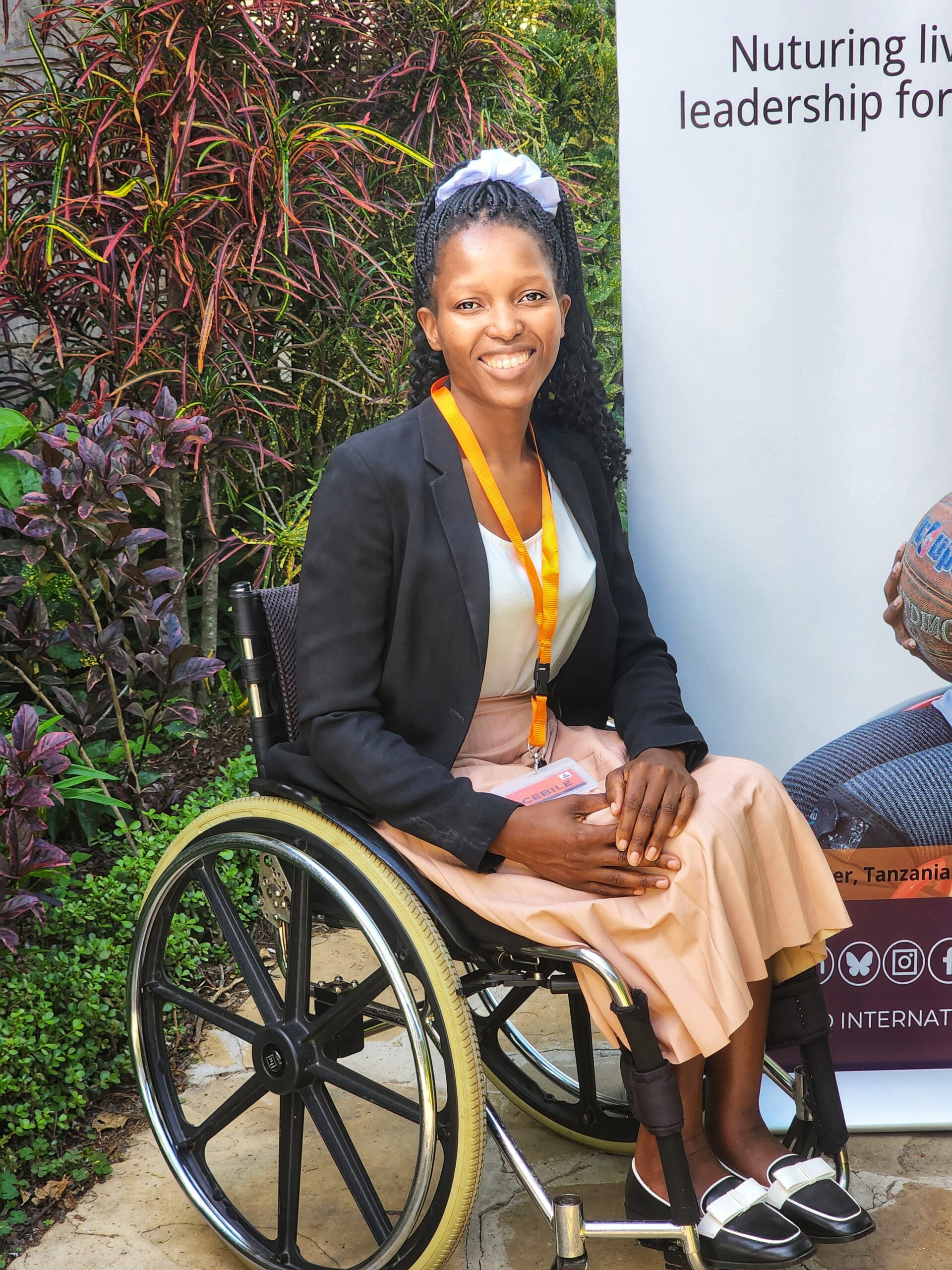
“Something truly special about me,” she shares, “is my personality. I’m brave, a little stubborn, and deeply passionate about what I believe in.”
“My project is about advocacy for accessibility and inclusion of people with disabilities in all aspects of society. I focus on raising disability awareness—starting from the family unit to the community, and all the way up to national level, because I believe real change begins with awareness and understanding.”
To Cebile, leadership is rooted in empathy. “It means having the heart of the people. It’s about showing up, setting an example, and standing up for others.”
And for her, disability leadership goes a step further. “It means taking the lead in declaring: ‘Nothing for us without us.’ It’s about ensuring people with disabilities are not just spoken for, but are actively involved—whether in policymaking, infrastructure design, or social spaces. Inclusion must be intentional.”
Her mission is clear: to create accessible spaces, inclusive systems, and spread disability awareness far and wide. “Often,” she says, “society excludes us not out of malice, but because they simply don’t know how to accommodate our diverse needs. By educating others, I hope to end the stigma around disability.”
Cherno Ceesay.
Meet Cherno, a passionate disability justice activist from The Gambia, in West Africa.
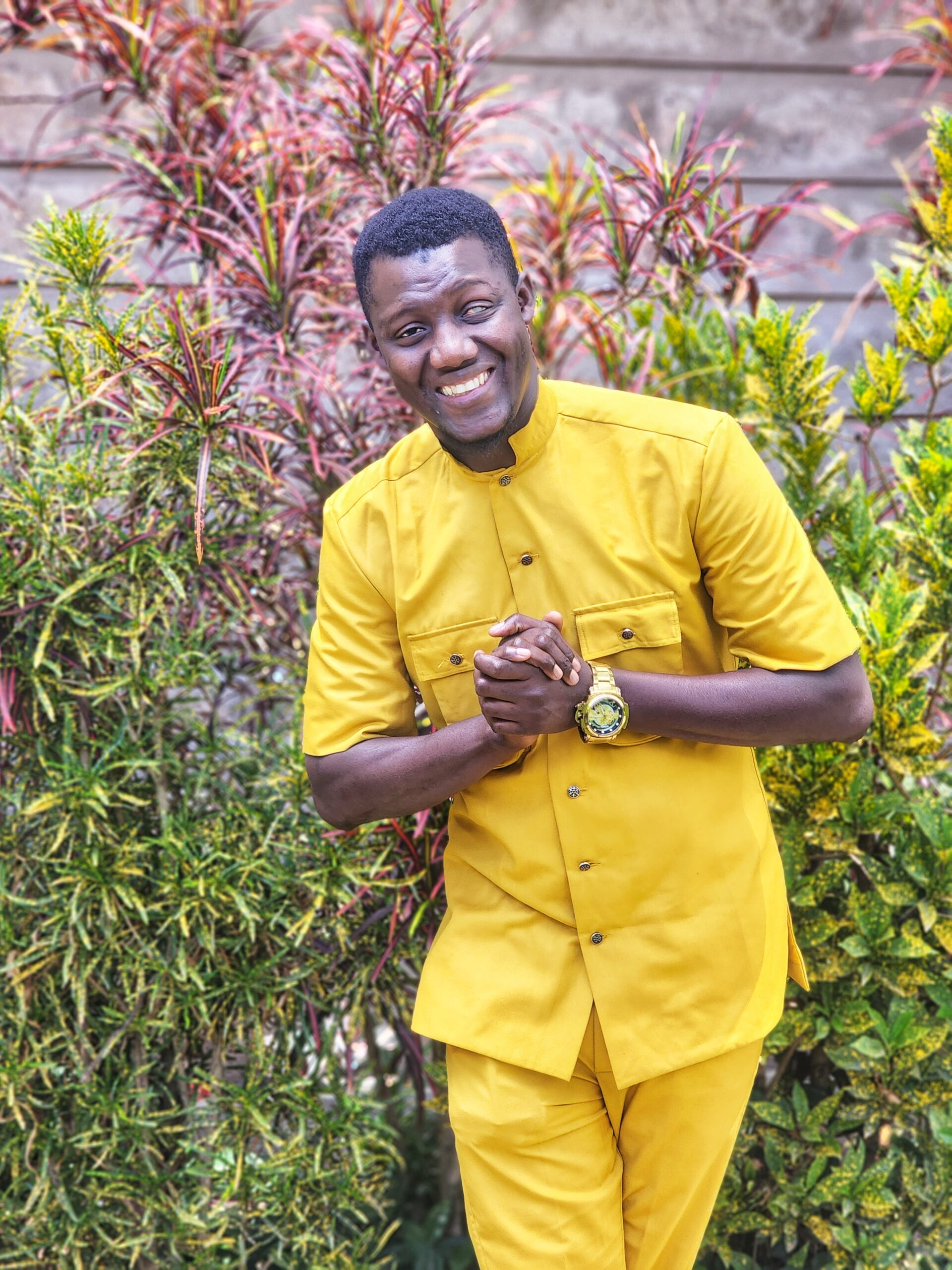
“One special thing about me,” he says, “is that I’m known for my sense of humor and ability to make light of challenging situations. I believe that laughter is a powerful tool for bringing people together, breaking down barriers, and creating an inclusive atmosphere. Whether it’s cracking a joke at a leadership meeting or finding a funny analogy to explain a complex idea, I love making people smile while addressing serious topics like inclusion.”
Cherno brings this spirit of connection and optimism into his work through his initiative, Promoting Inclusive Political Participation for Young Persons with Disabilities in The Gambia. “My project confronts the deep underrepresentation of young people with disabilities in political leadership and decision-making.”
“Despite their significant presence in society,” he explains, “young people with disabilities often face barriers that prevent them from participating in political discourse. This initiative aims to equip them with leadership skills, confidence, and advocacy tools, enabling them to become active participants in the democratic process. By training and mentoring young people with disabilities, I strive to create an environment where their voices are heard, and their contributions to governance are valued.”
To Cherno, leadership is more than holding a position. “It’s about empowering others, driving change, and leading with purpose and integrity. It involves listening to people, understanding their needs, and guiding them towards achieving a common goal.”
When he speaks of disability leadership, his belief is clear: “It means using our unique lived experiences to advocate for a more inclusive society. It’s about showing that individuals with disabilities have the skills, vision, and resilience to lead and make impactful changes in their communities.”
Cherno’s passion lies in disability rights, political inclusion, and education. He’s a strong advocate for equal representation, ensuring that persons with disabilities have full access to leadership roles, education, employment, and political spaces.
“I hope to change the perception of disability in leadership,” he says. “I want to see more young people with disabilities take on leadership roles and be seen as capable contributors to society. By doing so, I aim to foster an environment where inclusivity is the norm, not the exception.”
Litan Baruri.
This is Litan, a passionate advocate for disability justice from Bangladesh.
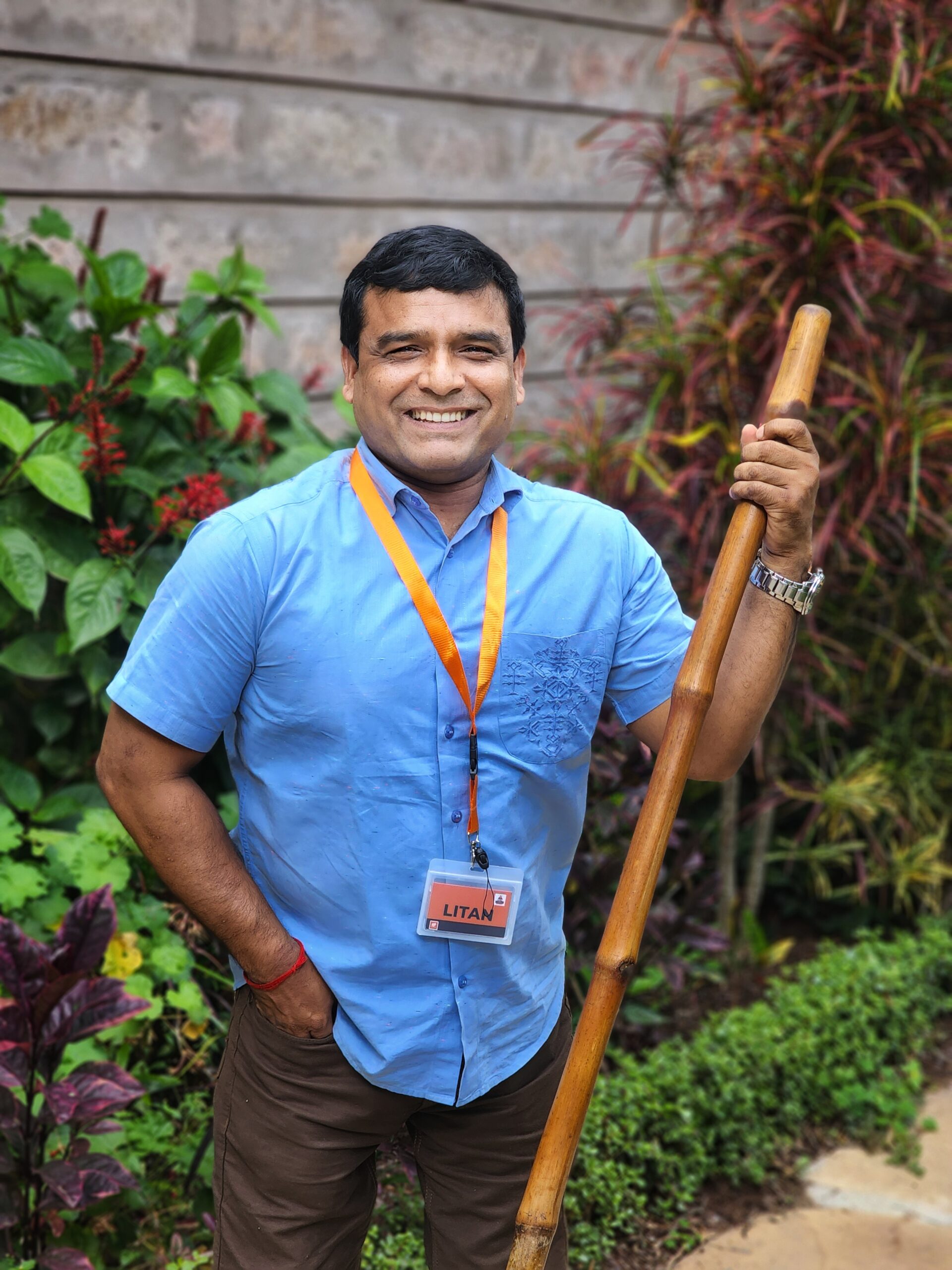
“One special thing about me,” Litan says, “is that I am a soft-hearted person. That gentleness fuels a deep commitment to making change through awareness and advocacy.”
“My project is about raising awareness about disability among different stakeholders to contribute to the disability movement through online platforms like social media, print and electronic media so that I can reach several people with information about the disability justice.”
“Leadership is the unique quality to influence others through honesty, integrity, generosity, transparency, and accountability for positive change.”
“Disability leadership means being a leader who works to establish the rights of persons with disabilities. It means a leader who believes nothing about us without us and works to establish it.”
“I am passionate about inclusive political participation, inclusive employment and education.”
“I want to change the negative mindset, stigma, and stereotypes towards persons with disabilities which are amongst the top challenges persons with disabilities face in my country.”
Gladis Achieng.
Gladis Achieng is a disability justice activist from Nairobi, Kenya.
She says:
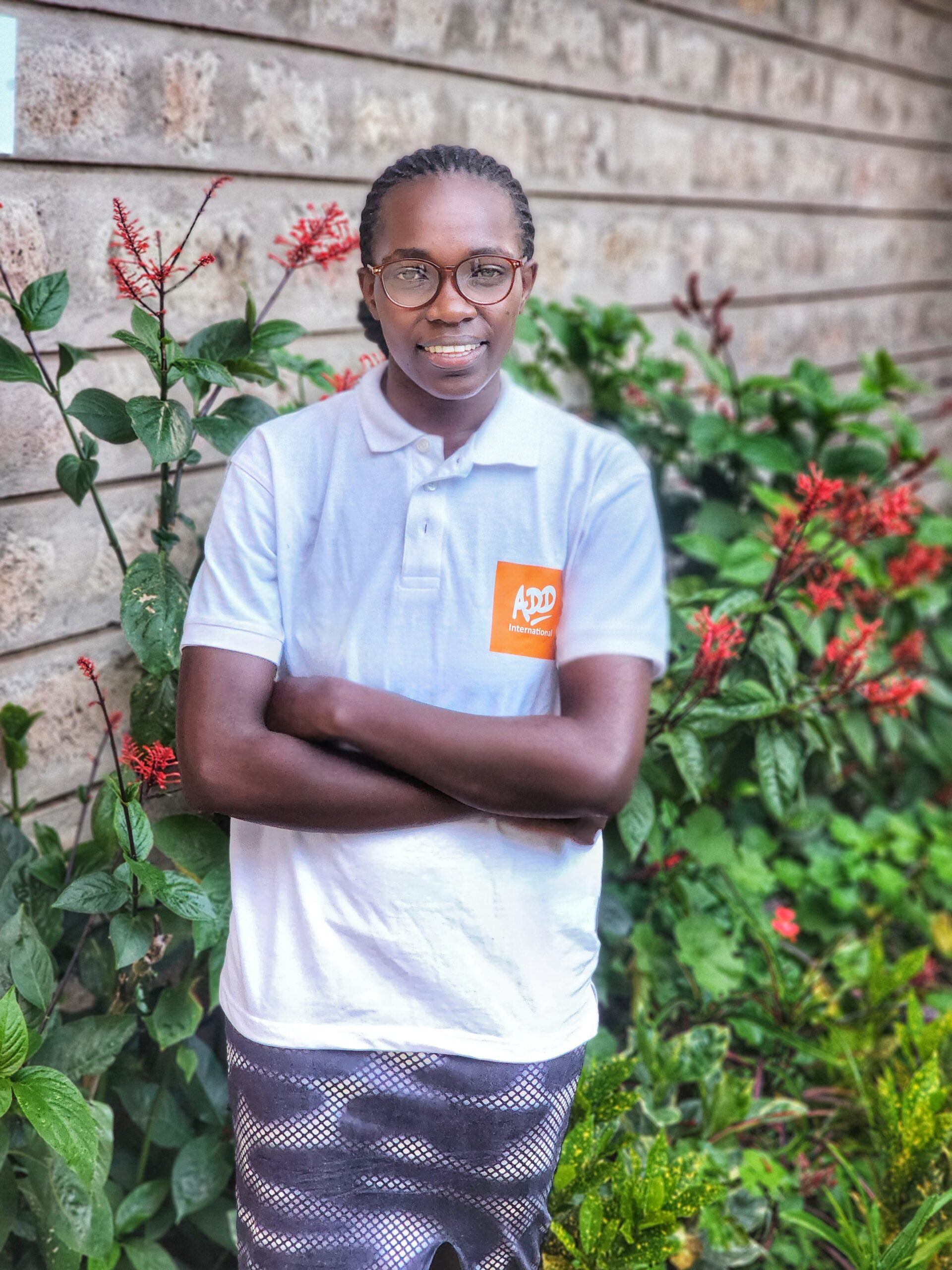
“One special thing about me is that I’m a loving person and deeply passionate about politics. It’s where I find purpose in fighting for inclusion and justice.”
“My project focuses on empowering students with disabilities in Kenyan universities in leadership through awareness campaigns, leadership trainings, and advocating for inclusive policies within student governance and political parties.”
“Leadership is about service, creating opportunities for others, and using your voice and position to break barriers and build bridges.”
“Disability leadership means being visible, bold, and unapologetic while advocating for systemic change that ensures accessibility, representation, and dignity for all persons with disabilities.”
“I’m passionate about inclusive education, political representation of persons with disabilities, youth empowerment, and economic independence for disabled women.”
“I hope to influence institutions and political spaces to become more inclusive and accessible, where disability is seen as strength and diversity is celebrated.”
Juliana Afia Mahmood.
Juliana, from Ghana, is someone who stands firmly for justice and fairness.
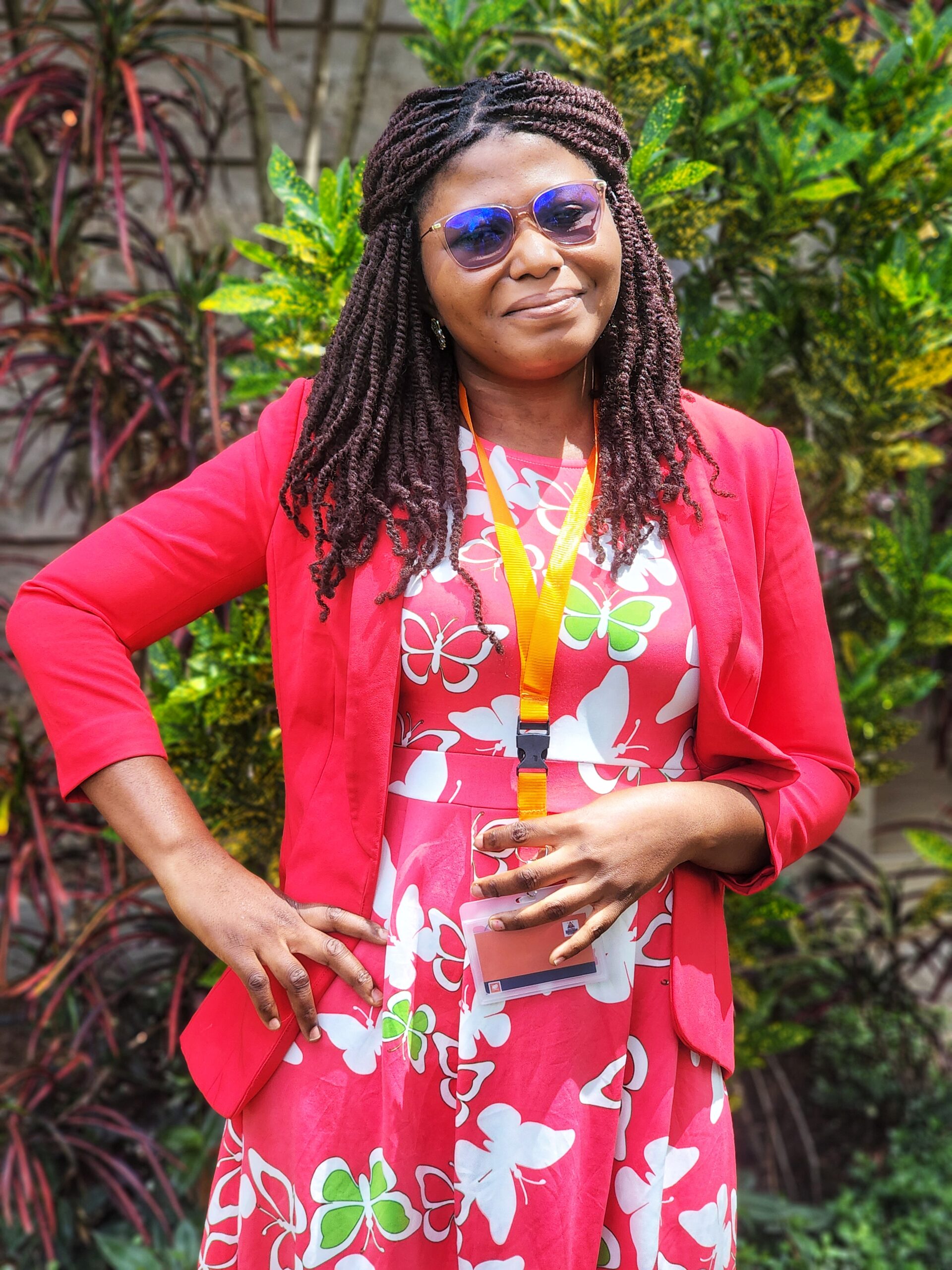
“One special thing about me is the fact that I like helping people who are in need. I believe in justice and fairness at all levels.” She says.
Juliana’s project is dedicated to empowering women and girls with albinism, short stature, and mental health conditions.
“My project is about empowering and building the capacity of women and girls with albinism, short stature and mental health conditions by educating them on the international and national laws that exist to promote and protect them like the UN Convention on the Rights of Persons with Disabilities (UNCRPD), the African Disability Protocol (ADP) and the Persons with Disability Act in Ghana. This will enable them to demand their rights and inclusion in the disability community and society at large.”
“My project aims to remove all barriers in families, communities and the society which prevent persons with disabilities from taking part in decision making processes at all levels and also exclude them from participating and taking up leadership roles in their communities and the country at large.”
“To me, leadership refers to the ability to carry your people along in whatever you do and to give them the opportunity to share their views where needed.”
And when it comes to disability leadership, Juliana makes her vision clear:
“Disability leadership to me is where all barriers are removed and the views of the leader are respected and seen instead of the person’s disability.”
Her passion touches several areas, each vital to the rights and wellbeing of persons with disabilities:
“I am passionate about accessible health services for women and girls with disabilities, promoting inclusive education for children with disabilities, and promoting equal rights and justice for all.”
“The change I want to see is a world where women and girls with disabilities are given the voice and the opportunity to fully participate and influence decisions at all levels without cultural bias, discrimination and stigma.”
Mahfuzur Raqeev.
This is Mahfuzur a disability justice activist from Dhaka, Bangladesh.
He says:
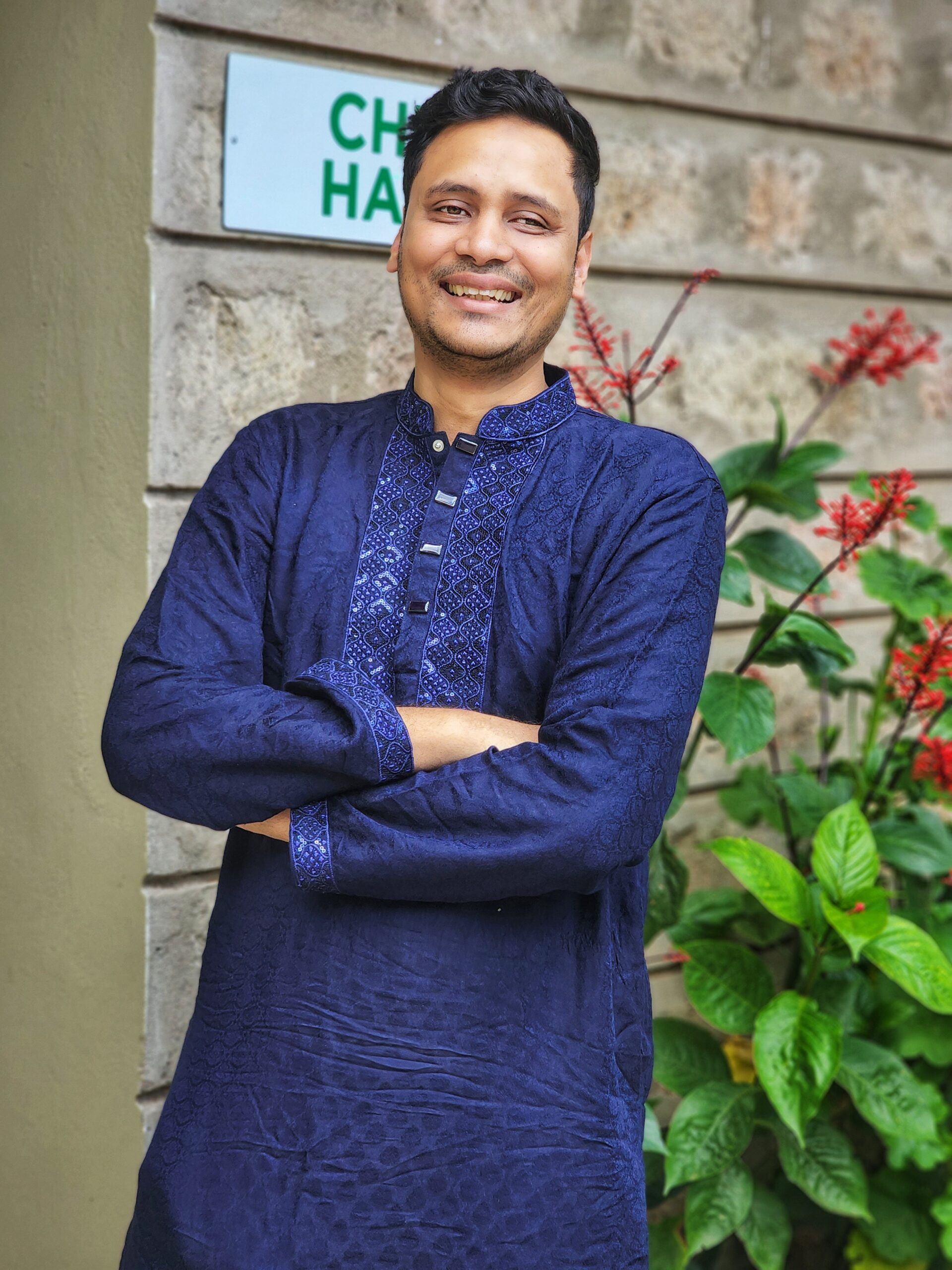
“One special thing about me is that I’m a very curious person. I love to seek knowledge and use it to help others where I can.”
“My project focuses on conducting online trainings on leadership to the youth with disabilities from the different regions of Bangladesh. I will also conduct social media campaigns to promote employment rights of persons with disabilities.”
“Leadership is about influencing and guiding others with empathy, accountability, and a shared vision towards change. Leaders must listen to others actively, create space for diverse voices, and turn challenges into opportunities. Leadership also means taking responsibility and building trust through action.”
“Disability leadership means making decisions and taking actions that are inclusive of persons with disabilities.”
“I’m passionate about supporting the leadership capacity of young people with disabilities even in the remote areas, I am also passionate about inclusive employment and digital accessibility.”
“I hope to influence the public and private sectors to adopt inclusive practices and policies, ensuring that persons with disabilities are recognized as active, capable contributors to society.”
Jerry Okiki.
Jerry, from Nairobi, Kenya in Eastern Africa, finds his voice through poetry.
He loves poetry and to him, it’s a deeper way to express himself. He says, “I turn to poetry when I don’t have the words for what I feel.”
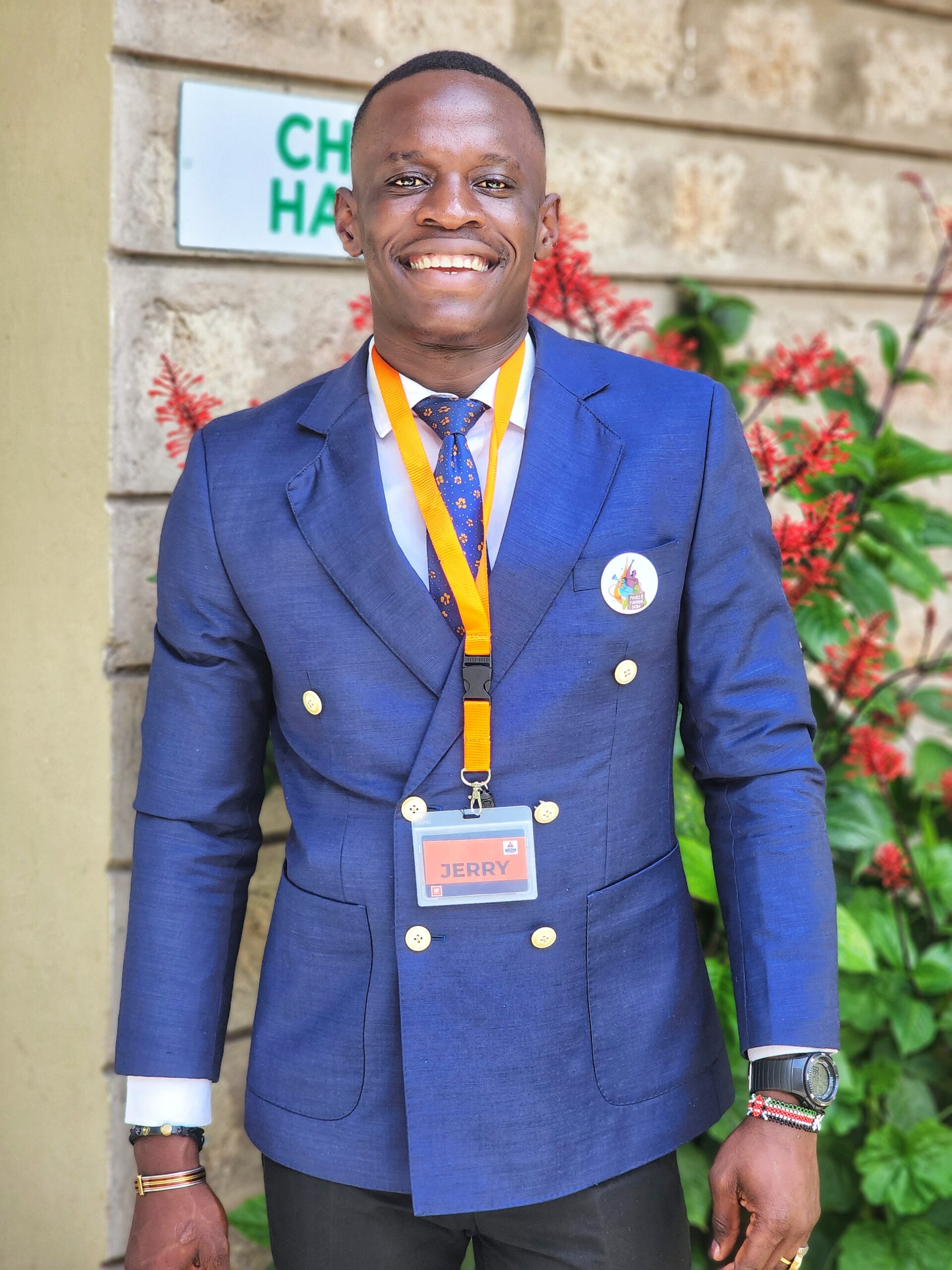
“My project is about creating a safe and supportive space for people with disabilities to share their stories and build their personal or community brand. It focuses on those whose lives are shaped by many overlapping parts of who they are—like their disability, gender, sexuality, social class, and life experiences. It’s a space where all of those parts are seen and valued.”
“Leadership, to me, is about integrity. It’s less about being followed and more about walking beside others.”
“Disability leadership means advocating for and actively leading initiatives that promote the inclusion, rights, and opportunities of people with disabilities and creating a more equitable and accessible world where everyone can participate fully, regardless of their disability.”
“I am passionate about disability justice, economic equity, access to education, liberation, and leadership.”
“I want to support persons with disabilities with intersecting identities who are economically marginalised so that they are represented and included as decision-makers shaping the future of our communities.”
Lillian Munuo.
Lilian is a disability justice activist based in Tanzania. She is also an artist and curator.
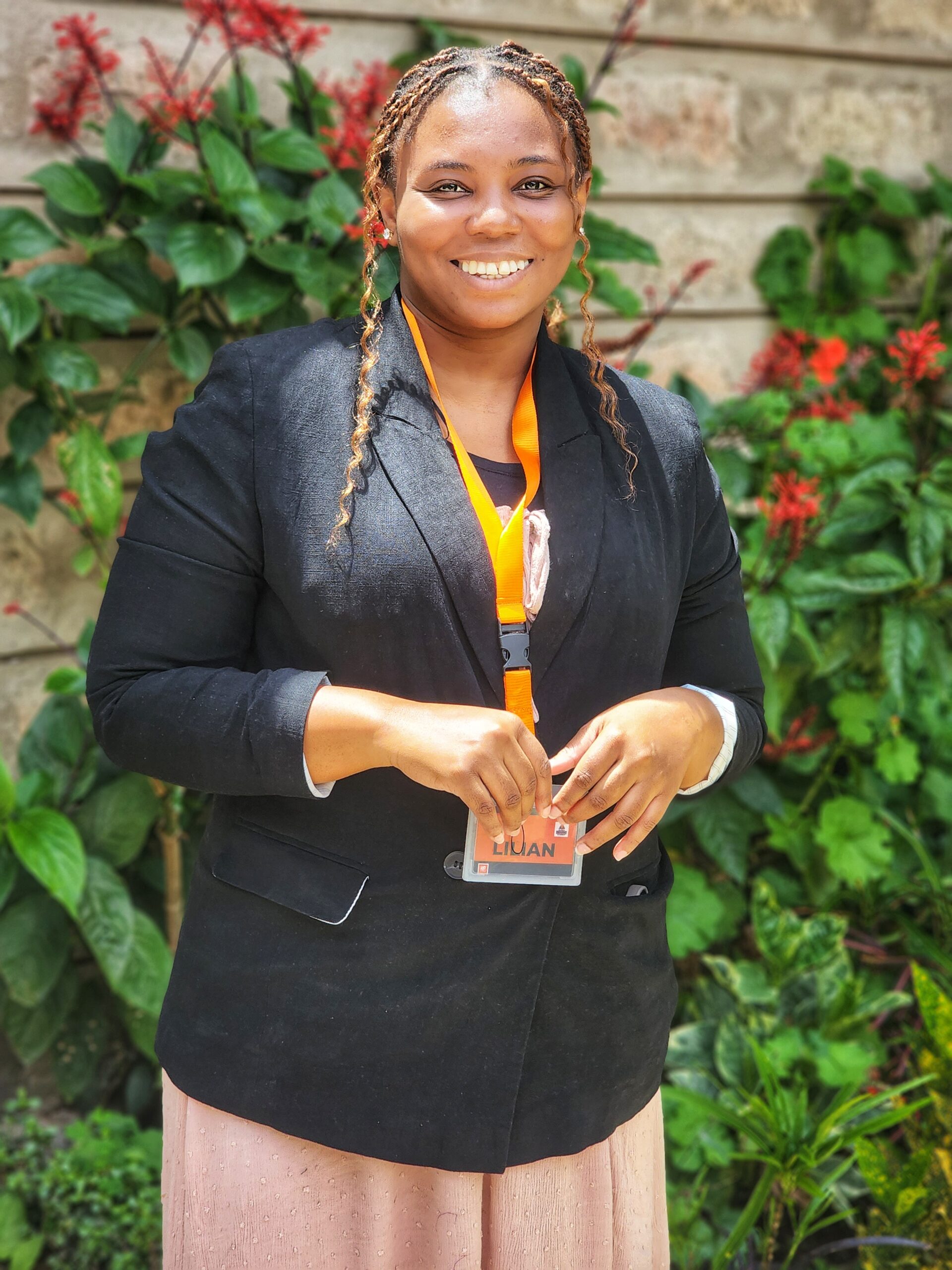
“Something fun about me is that I absolutely love traveling! Exploring new places, meeting people from different cultures, and learning from diverse lived experiences excites and inspires me. Each journey adds a layer to my understanding of the world and fuels my creativity as both an artist and curator. I look forward to traveling more and more in the future.”
“My project, which is also my initiative, is called Beyond the Label, and I use art workshops and exhibitions to amplify the voices and lived experiences of people with disabilities. Through creative expression, collaborative storytelling, and curation, the project aims to reshape how disability is perceived in society, breaking stereotypes, fostering inclusion, and creating platforms for dialogue and visibility. It is both a creative and social movement rooted in empathy, representation, and community.”
“To me, leadership is about creating meaningful change. It’s the ability to envision a better, more accessible world and take action to make it real. Leadership involves listening to others, especially those at the margins, and creating space for their voices. It’s not about being at the front, it’s about walking alongside, learning together, and leaving pathways open for others to follow.”
“I often say that I’m a girl changing her narrative with the hope of inspiring another young girl like me to dream boldly, not be limited by physical barriers, but to use them as motivation. Disability leadership is about leading with lived experience and using that knowledge to create systems of support, representation, and advocacy. It means creating change about how disability is seen and included in every space.”
“I’m passionate about disability rights, women and girl empowerment, mental health awareness, and the transformative power of art. I care deeply about challenging misconceptions about disability and supporting parents and caregivers to better understand and support children with disabilities. I believe in using art as a powerful tool to communicate, heal, and bridge gaps in understanding.”
“I hope to change the way disability is understood and talked about in my community. Too often, stereotypes and misconceptions create barriers that isolate people with disabilities from opportunities and participation. Through my work, I aim to challenge those narratives and build communities where people with disabilities are not only included but are visible, valued, and leading.”
Lily Cherotich.
Meet Lily a disability justice activist from Kilgoris, Kenya. Lilly is very passionate about disability inclusive leadership especially seeing people with disabilities take on elected positions of power as opposed to being appointed or nominated.
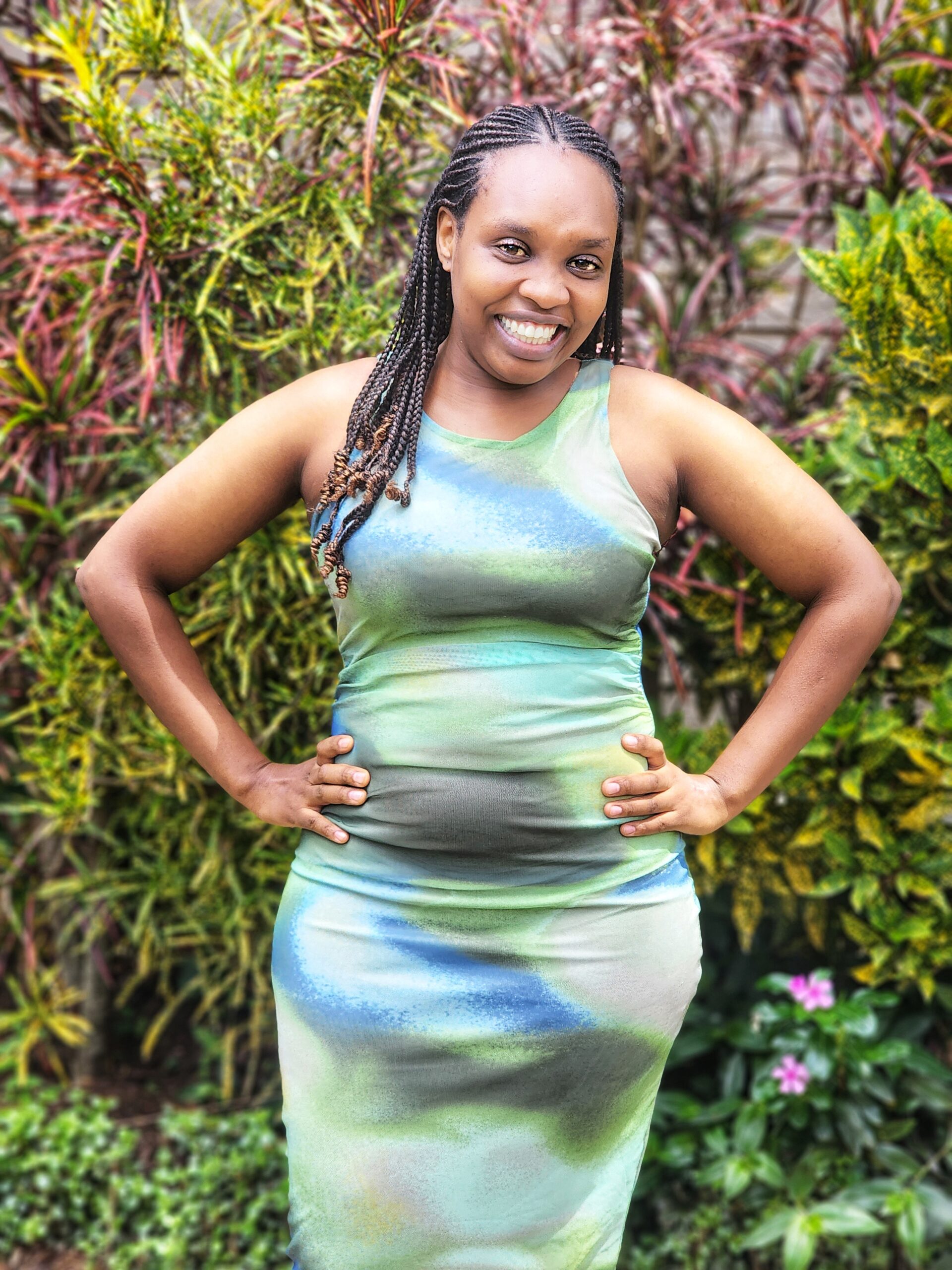
“One special and fun thing about me” Lily says, “is I’m an extrovert who loves to engage with different people.”
“My project focuses on empowering people with disabilities to participate in leadership by running for elective positions rather than being nominated.”
“To me, leadership is the ability to influence and inspire people to achieve desired goals while remaining inclusive and accountable.”
“Disability leadership means people with disabilities having the power to lead by actively making decisions that affect their lives and that of other people.”
“I’m passionate about disability rights, inclusive education and leadership, and breaking the stigma around disability and gender.”
“My hope is to see that it is normalised for people with disabilities to take on elected positions of power as opposed to being nominated.”
Shashank Pandey.
Shashank is from New Delhi, India. He is very passionate about seeing persons with disabilities included and taking part in political spaces.
He says:
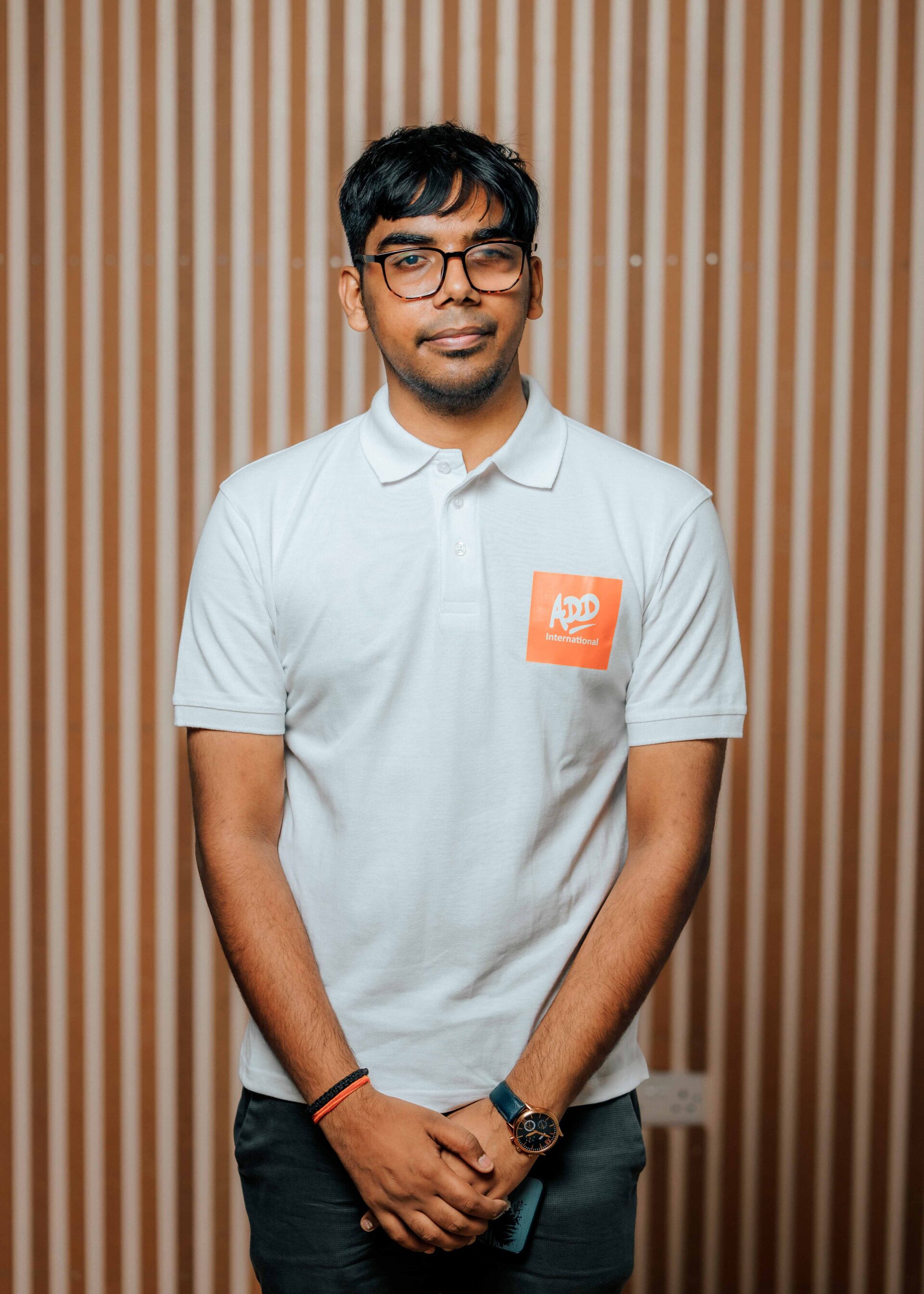
“One special and fun thing about me is I like reading the world map.”
“My project is about developing climate-resilient, electoral systems that ensure inclusive political participation of persons with disabilities who are marginalised due to both systemic exclusion and impacts of climate change.”
“Leadership, to me, is about strategically setting clear boundaries and crafting a vision that guides a team or organisation toward a common goal. It involves empowering individuals by distributing resources effectively, which enables them to become independent leaders in their own right. Good leadership also means recognising one’s limitations and being open to seeking help or collaboration when needed. This openness not only fosters a supportive environment but also enhances the collective effort to achieve shared objectives. Ultimately, leadership is about guiding others while also being adaptable and inclusive in the pursuit of success.”
“To me, disability leadership means the 4 Ps: Presence, Power, Perspective, and Prosperity. It begins with Presence ensuring that persons with disabilities are not just included but centered in leadership and decision-making spaces. Power refers to the ability to influence institutions, laws, and social norms, allowing disabled individuals to be agents of systemic change rather than passive beneficiaries. Perspective acknowledges the value of lived experience, which brings critical insights that must inform policies and practices affecting the disability community. And importantly, Prosperity highlights the need for economic empowerment, because leadership without access to resources and financial autonomy is incomplete. True disability leadership must dismantle structural barriers while creating pathways for dignity, agency, and sustainable livelihoods.”
“One issue I’m deeply passionate about is the political underrepresentation of persons with disabilities across all levels of governance. This systemic exclusion is both a cause and a consequence of marginalisation.”
“One thing I hope to change in my community is the perception that the disability movement should remain apolitical, meaning they should not get involved in politics or even express the interest to participate. . I believe that voting is not just a right, it is a powerful tool for voice, visibility, and change. For far too long, the concerns of persons with disabilities have been framed solely as welfare or charity issues, rather than matters of justice, rights, and representation. To transform this, we must politicise the disability movement, demanding seats at decision making tables, contesting elections, and holding power accountable. Only then can our lived experiences shape the policies that affect us, and only then will the promise of democracy include everyone.”
Akash Rahman.
Meet Akash a disability justice activist from Dhaka, Bangladesh. Akash loves gardening and travelling.
He says:
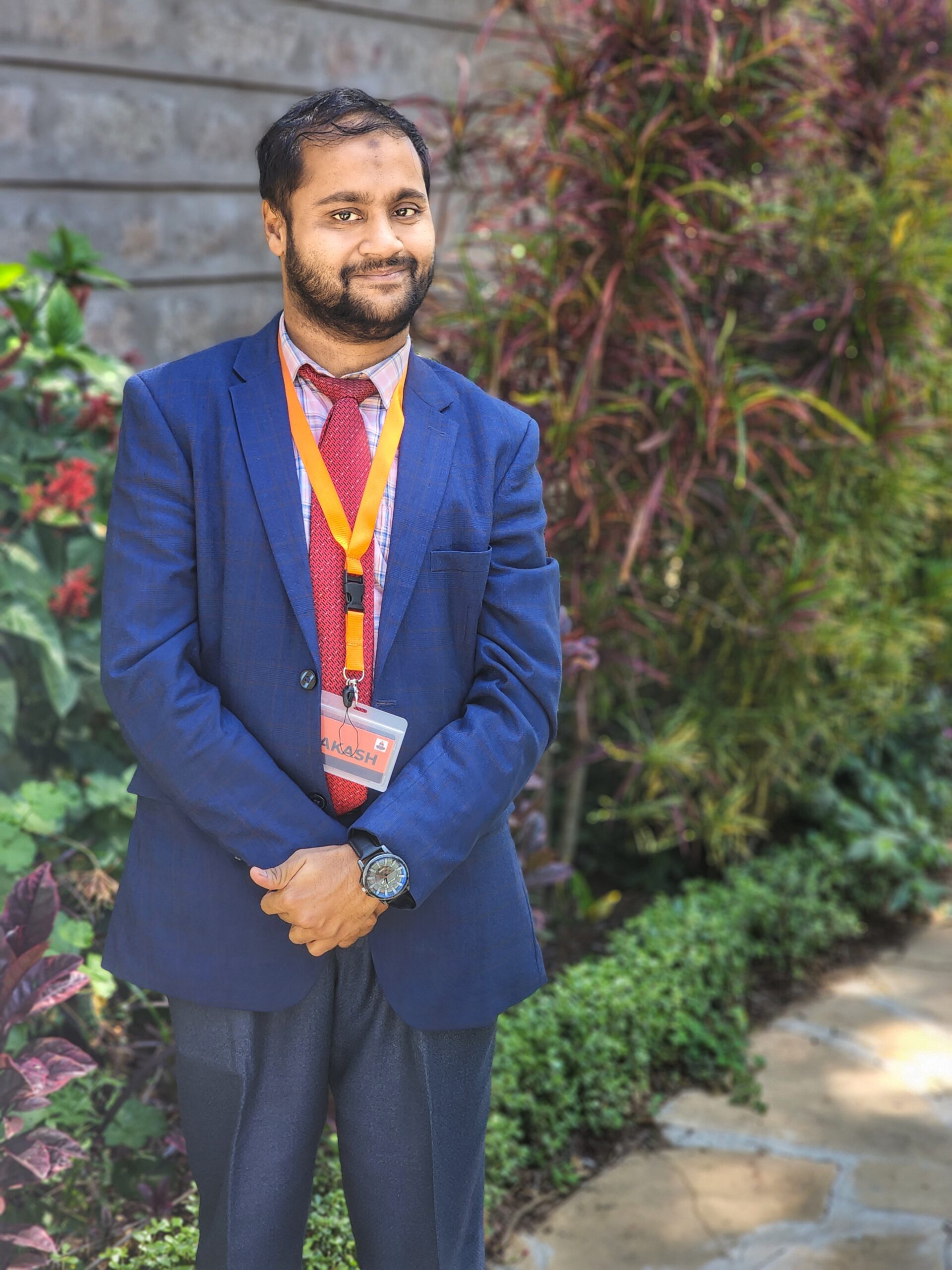
“My favorite way to relax is working in my garden, and I also love to travel to new places.”
“My project is focused on empowering persons with disabilities through leadership training, policy advocacy, inclusive employment, and accessibility. It aims to build the capacity of persons with disabilities, strengthen disability rights laws, create job opportunities, and promote accessible public spaces and digital platforms.”
“Leadership means standing up for justice, even when it’s uncomfortable, and working to make communities more inclusive and accessible.”
“Disability leadership means creating inclusive spaces where diverse voices and experiences are respected and amplified. It also means working for others to ensure their rights as human beings are upheld.”
“I’m passionate about creating inclusive learning environments where everyone, regardless of their disability, has the tools and support they need to succeed. For me, accessibility isn’t just a feature—it’s a right. Growing up, I saw how a lack of accessibility in education could limit potential. That’s why I’m very passionate about it.”
“I hope to improve accessibility in education, so every learner has an equal opportunity to succeed, no matter their disability.”
Salama Sabano.
Salama is a disability justice activist from Uganda. She is a musician and uses her music to create awareness and advocate for disability justice.
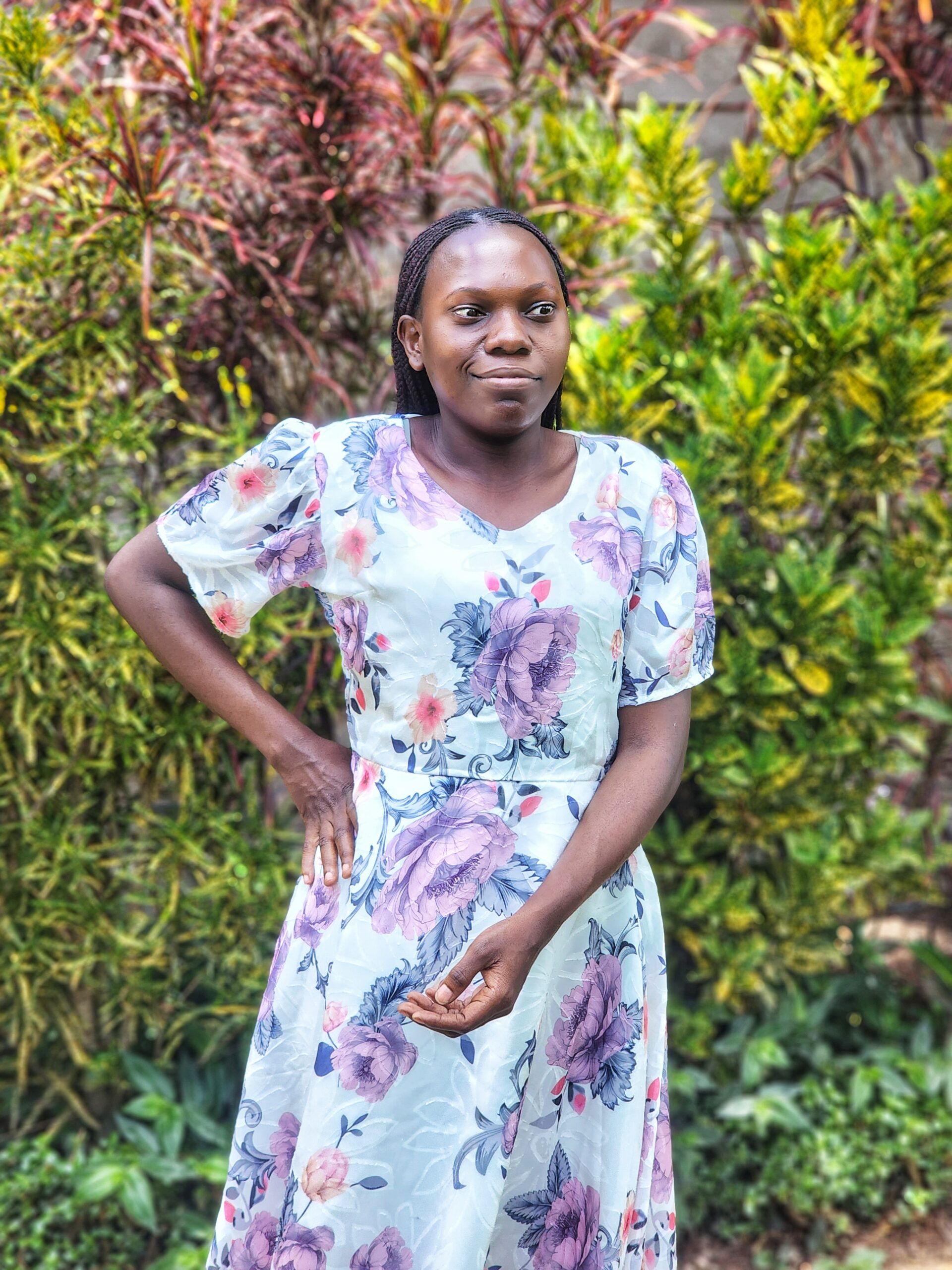
“A special and fun thing about me”, she says, “is I am talented in music. I love singing so much. I also braid hair despite the fact that I have a visual impairment.”
“To me, leadership is being a role model, being able to influence change, and having people learn from you.”
“Disability leadership means raising voices for persons with disabilities to gain confidence and be able to voice their views, concerns, and ideas.”
“I am passionate about addressing the discrimination and inequality that persons with disabilities face in society. I am also passionate about addressing sexual abuse among young girls and women with disabilities and seeing that perpetrators are brought to book.”
“I have a friend with a visual impairment who was raped late in the evening because of her disability. She couldn’t see, so they took advantage of her, and the perpetrators were never found. This was very absurd.”
“I hope to see a change in community perception about persons with disabilities because we are undermined and society assumes we have no potential to do anything. We are not given opportunities like others. An example is I have the skill to braid hair but no salon can employ me despite several attempts because of my disability.”
Sheila Opiyo.
This is Sheila a disability justice activist from Kenya. She says her strong communication skills play a big role in her disability advocacy work.
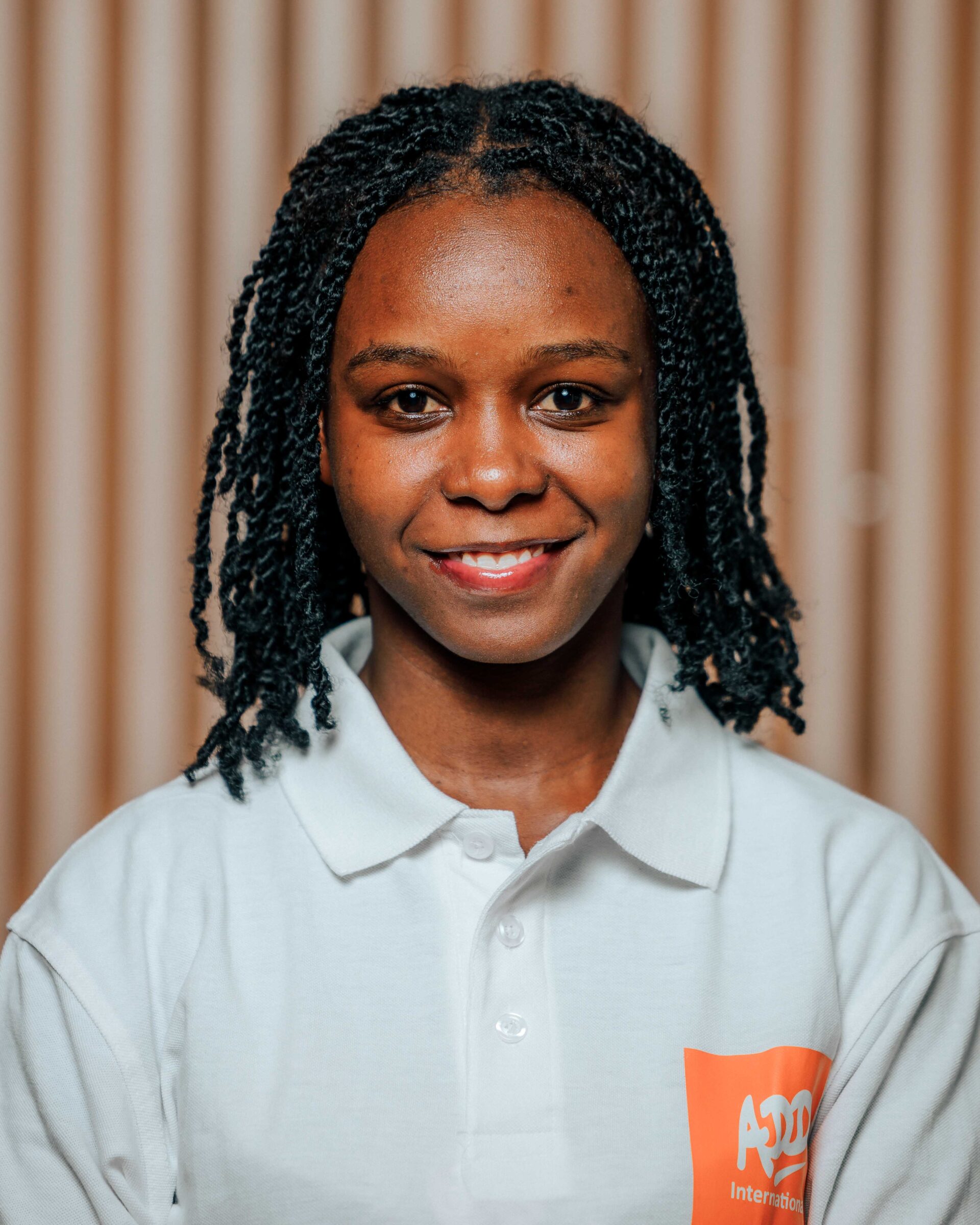
“My communication skills help me explain complex ideas in simple ways that different people can understand. This makes it easier for them to connect with the message and get involved.”
Through her advocacy, she hopes to create real change.
“My project is about advocacy for accessible and inclusive education for the deaf.”
Her understanding of leadership is grounded in purpose and impact.
“Leadership is the ability to inspire, guide and influence teams towards the accomplishment of common goals.”
And to her, disability leadership is about much more than holding a title.
“Disability leadership goes beyond positional authority. It involves leveraging personal experiences, empathy, and strategic thinking to drive positive change.”
“I am passionate about working towards bridging the communication gap and barriers that deaf people face. As a deaf person, there are a lot of communication challenges that I face in day-to-day activities like participating in meetings, communicating on the phone, understanding a simple conversation with several people. This makes it difficult for those who are not deaf to understand me and so I have to push harder to be understood.”
“I hope to create more awareness on inclusive communication, break barriers in communication that deaf people face.”
Nani.
Nani (not real name) is a disability justice activist from Addis Ababa, Ethiopia
She says:
“I am a proud deaf woman who uses my lived experience to advocate for inclusion and justice. I also love teaching sign language and helping others see the beauty of deaf culture.”
“My project, Strengthening Inclusive Education and Advocacy for Deaf and Disabled Girls in Ethiopia, focuses on removing barriers that prevent deaf and disabled girls from accessing quality education. I plan to do this through forming a Parents, Teachers, Students Association (PTSA) network in six schools for the deaf, training educators and parents, and leading advocacy efforts. I aim to build inclusive school communities and amplify the voices of deaf and disabled girls. My project promotes disability justice, encourages collaboration, and works toward policy change at local and national levels. It focuses on breaking down barriers in education. The goal is to have Ethiopian Sign Language recognised as a working language to eliminate communication barriers for deaf students.”
“As a Deaf woman, I’ve experienced the lack of interpreters and support from elementary school through university. Many deaf students are forced to learn without proper access, and this affects our education and well-being. Through building a Parents, Teachers, Students Association network, training educators and families, and advocating for inclusive policy, this project aims to create an accessible, equitable learning environment where deaf and disabled girls can thrive.”
“Leadership means using your voice, values, and vision to uplift others and make change. For me, it’s about leading by example, especially as a deaf woman in spaces where we are often overlooked.”
“Disability leadership means people with disabilities leading the way in creating solutions for our own communities. It is about being visible, having our voices respected, and shaping the systems that affect our lives. As a Deaf leader, I believe in collective strength and authentic representation.”
“I am passionate about inclusive education, deaf rights, access to sign language, disability awareness, and creating spaces where all girls especially the deaf and disabled girls can thrive, lead, and dream big.”
“I hope to change the way society sees deaf and disabled girls from passive recipients to powerful leaders and ensure schools are truly inclusive, accessible for all.”
FIND OUT MORE
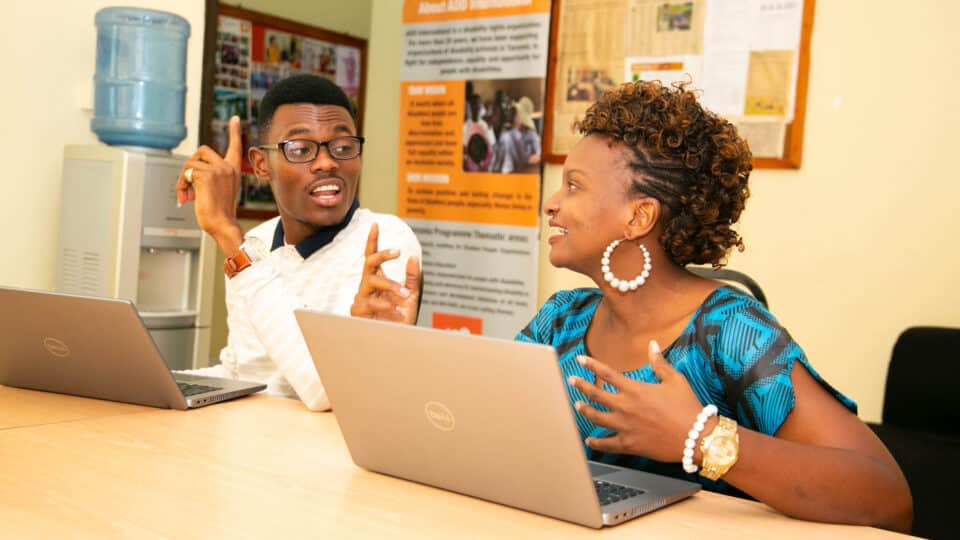
SUPPORTING LIVED EXPERIENCE LEADERSHIP
Get to know more about our work with young leaders.
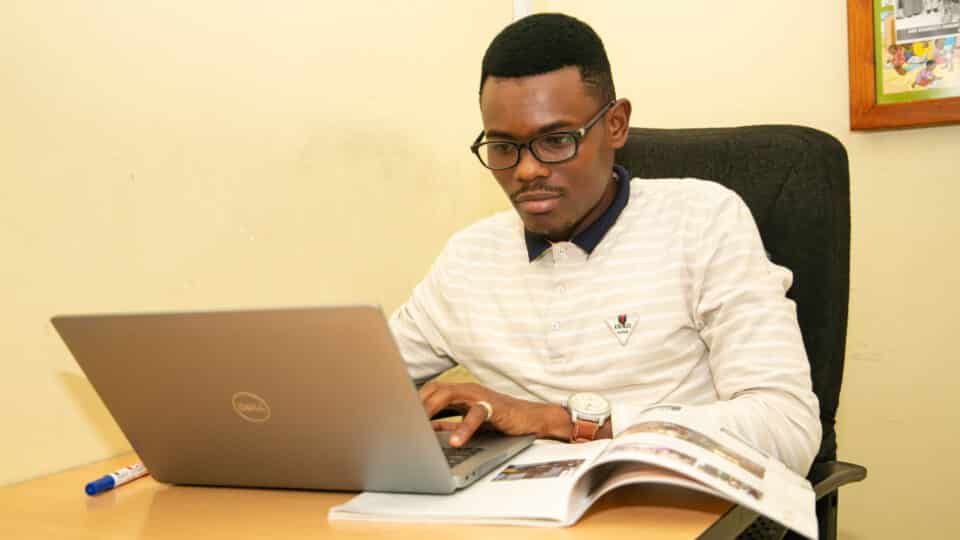
DANIEL’S STORY
Daniel, a young leader in Tanzania, shares his story.

